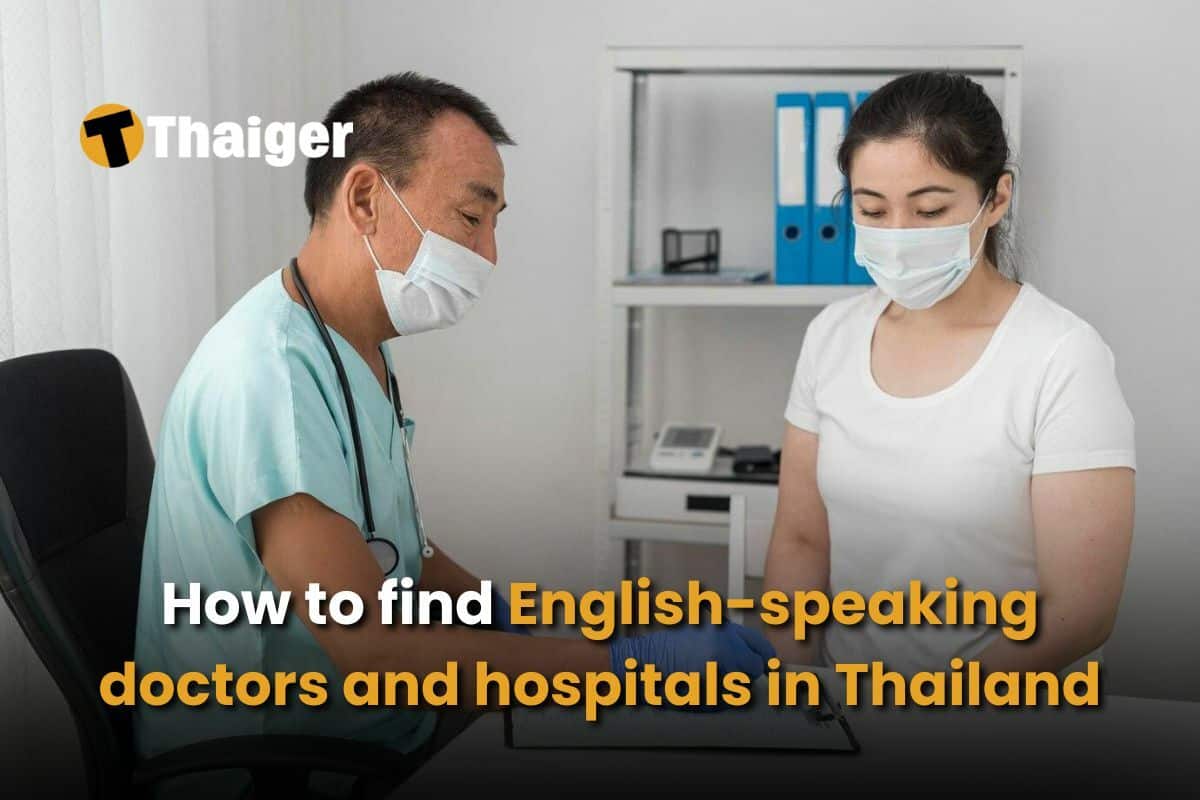How to find English-speaking doctors and hospitals in Thailand

One minute, you’re wading through the thick heat of Bangkok, Phuket, or Chiang Mai. The next, you’re woozy from food poisoning or a motorbike mishap. Suddenly, you realise that you are in a country that does not speak your language, in a place where the words for hospital and doctor and help do not slip easily off your tongue. And so, the question becomes urgent: Where do you go to find English-speaking doctors and hospitals in Thailand?
Now, if you’re the kind of person who plans ahead, you probably already have a list of hospitals saved in your Notes app, right next to your favourite rooftop bars and the emergency phrase, “I’m allergic to penicillin” in Thai. But for the rest of us who travel or move to Bangkok thinking we’ll figure it out as we go, Pacific Prime, an award-winning insurance broker, has created this guide to help.
Understanding Thailand’s healthcare system
Thailand, like most places, operates on a two-tiered system, so your choice is divided into public and private hospitals.
Funded by the government, public hospitals are more affordable, sometimes bureaucratic, and often full. Although they may not have the polished look of private hospitals, they’re staffed by skilled medical professionals.
The downside is that they can be very busy. This means that you have to wait, and when it’s finally your turn, the appointment is fast. In addition, the number of English-speaking staff may be limited, especially outside Bangkok and major tourist areas.
Private hospitals, on the other hand, are where things move quickly. They look like boutique hotels, with concierge desks and sleek waiting areas. The doctors are top-tier and often trained abroad, so most of them can speak English very well. Many private hospitals in Thailand are also internationally accredited, some even more advanced than their Western counterparts, which is why the country is a medical tourism hotspot.
The difference, of course, is the price. Public hospitals are more affordable (especially if you’re an expat working legally in Thailand as you get access to subsidised healthcare through the Social Security scheme). Private hospitals are not.
Best private hospitals with English-speaking doctors in Thailand

According to Pacific Prime, the best hospitals in Thailand for expats are listed below.
Bangkok
- Bumrungrad International Hospital: One of the largest private hospitals in Southeast Asia, Bumrungrad is internationally accredited and has English-speaking doctors in nearly every speciality.
- Samitivej Hospital (Sukhumvit, Srinakarin, and Thonburi branches): A popular choice for expats, with a strong reputation for paediatrics, orthopaedics, and maternity services.
- Bangkok Hospital: A hospital network with branches across Thailand, offering international-standard medical care with multilingual staff.
Chiang Mai
- Chiang Mai Ram Hospital: One of the top private hospitals in northern Thailand, widely used by expats and medical tourists.
- Bangkok Hospital Chiang Mai: Part of the Bangkok Hospital network, offering high-end medical services and English-speaking doctors.
- McCormick Hospital: Boasting an ISO certification, this hospital is popular among both local and international patients.
Phuket
- Bangkok Hospital Phuket: A leading hospital for medical tourists, particularly for elective procedures like plastic surgery and dental care.
- Dibuk Hospital: Part of the Bangkok Dusit Medical Services (BDMS) network, the hospital is known for its fast services and multilingual staff.
Pattaya
- Jomtien Hospital: This hospital is known to offer high-quality services in emergency care, paediatrics, obstetrics, general surgery, and more.
- Bangkok Hospital Pattaya: A top choice for international patients, with English-speaking specialists in various fields.
Most of these hospitals have international patient departments that assist with translation, insurance claims, and medical travel arrangements.
What to do in a medical emergency in Thailand

Thailand doesn’t have the kind of 911 system where an ambulance screeches to your door before you hang up. If something goes wrong, you need to know what to do before you actually need to do it.
The official emergency number is 1669. It’s free, but don’t expect a swift response. If time matters, calling a private hospital directly is usually a better move. Their ambulances show up faster, but they’ll charge you for the ride. If you’re completely lost in the chaos, the tourist police at 1155 speak English and can help.
Or, if you’re in a big city like Bangkok or Pattaya, and the situation isn’t life-threatening, just get in a taxi and go straight to a hospital.
How expensive are private hospitals in Thailand?
Private hospital costs in Thailand depend on a handful of things, such as room rates, treatments, and how long you end up staying. Pacific Prime reports that prices typically start at 1,000 baht (around USD $29), but outpatient check-ups can vary depending on what you need and how much attention your doctor thinks you deserve.
How to avoid the high costs of private hospitals in Thailand?

For expats and tourists in Thailand, private hospitals are probably the best way to go. They’re efficient, modern, and staffed by doctors and nurses who speak English fluently. After all, when you’re sick in a foreign country, the last thing you want is a language barrier.
But with polished lobbies and concierge-style care come steeper price tags, and the bill can climb before you’ve even had a chance to sip the waiting room water. So how do you avoid those eye-watering costs? The answer is health insurance for expats.
If you’re already insured, double-check that your plan includes international coverage, specifically for Thailand. Not all policies do, and discovering you’re underinsured while sedated is not ideal.
If you’re not yet insured, or you’re unsure what kind of coverage you need, companies like Pacific Prime are worth knowing. They work with multiple international insurers and specialise in matching expats and travellers with health plans that actually work in Thailand. Think of them as your personal insurance guide through the maze of policies, exclusions, and hospital networks.
Foreigners who plan to stay long-term in Thailand should invest in international health insurance that includes outpatient visits and emergency care, not just dramatic scenarios involving helicopters and mysterious tropical diseases. Because in Thailand, it’s more likely you’ll need a doctor for food poisoning, a motorbike accident, or a gym injury from trying Muay Thai.
However, if you’re only in Thailand as a tourist, make sure your travel insurance includes proper medical coverage.
How Pacific Prime can help
Finding an English-speaking doctor and figuring out health insurance as an expat in Thailand can be confusing. Pacific Prime has been helping expats do exactly that for over 25 years. Their team in Thailand offers clear, one-on-one advice to help you compare plans, understand what’s actually covered, and choose insurance that fits your lifestyle, not just a checklist.
Whether you’re staying for a month or a year, a free consultation with Pacific Prime can take the guesswork out of protecting your health in Thailand so you can focus on the better parts of living here.
For more information on English-speaking doctors and health insurance for expats in Thailand, contact Pacific Prime Thailand for a free quote.
Sponsored
Latest Thailand News
Follow The Thaiger on Google News:


























